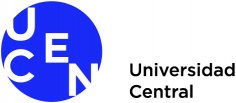
Sick animals. Philosophy as therapeutic. Diana Aurenque Stephan. Economic Culture Fund, Santiago de Chile. 2022. Animales Enfermos. Filosofía como terapéutica. Diana Aurenque Stephan. Fondo de Cultura Económica, Santiago de Chile. 2022.

|
For Diana Aurenque Stephan (Chile, 1981), author of the book entitled “Sick Animals. Philosophy as therapeutics” (FCE, 2022), this work is situated disciplinarily in the field of philosophical anthropology and the philosophy of medicine. The current director of the Department of Philosophy of the Faculty of Humanities of the University of Santiago, Chile (USACH) offers us a lucid philosophical reading of health problems and diseases for the human species. Based on the analysis of classic authors of German philosophy, such as Nietzsche, Heidegger, and Blumenberg, among many other Western authors, she states that human beings are "sick animals,” not because we suffer from a specific physiological disease, but because we are affected ontologically by a lack of health given by nature. “A human being is born sick and must heal by existing – and this also means becoming truly human.” By becoming aware of their existence, human beings abandon the state of identification with nature and are thrown to live a life of their own and give meaning to it beyond the mere satisfaction of their biological and instinctive needs. According to fossil evidence, in less than 100 thousand years, our species went from having a brain of approximately 200 ccs to the 1200-1400 cc it has today. This hypertrophied organ consumes 25% of body energy at rest, even though it represents only 3% of our body weight. That is to say, in a very short time –from an evolutionary point of view– we were losing physical strength, the sharpness of our senses, and the usefulness of our instincts to give priority to the development of our cognitive and philosophical capacities. While other non-human animals use and perfect their limbs to survive, human beings become human precisely by maintaining a fragile balance amid nature […] “We prefer a weak balance as a human than a more balanced, safer and more confident one as an animal." As “sick animals,” we live permanently imbalanced with our environment. Our vertiginous cultural development not only has run over us as animals but also devastated the global ecological balance. Only a sick animal can contaminate rivers, seas, and the land where the food it eats and feeds its young grows. Only a sick animal is capable of building the weapons with which it sows terror, suffering, and death in all corners of the world. ----- Para Diana Aurenque Stephan (Chile, 1981), autora del libro titulado “Animales Enfermos. Filosofía como terapéutica” (FCE, 2022), ésta es una obra que se sitúa disciplinalmente en el campo de la antropología filosófica y de la filosofía de la medicina. La actual directora del Departamento de Filosofía de la Facultad de Humanidades de la Universidad de Santiago de Chile (USACH), nos ofrece una lúcida lectura filosófica del problema de la salud y la enfermedad para la especie humana. A partir del análisis de autores clásicos de la filosofía alemana, tales como Nietzche, Haidegger y Blumenberg, entre muchos otros autores occidentales, la autora afirma que el ser humano es un “animal enfermo”, no en el sentido de padecer una enfermedad fisiológica determinada, sino que, por estar afectado, por así decir, ontológicamente de una falta de salud dada por la naturaleza. El ser humano nace enfermo y debe sanar existiendo –y ello significa también humanizarse verdaderamente”. El ser humano, al tomar conciencia de su propia existencia, abandona el estado de identificación con la naturaleza y se ve arrojado a vivir una vida propia y a darle un sentido a ésta, más allá de la mera satisfacción de sus necesidades meramente biológicas e instintivas. De acuerdo a la evidencia fósil, en menos de 100 mil años nuestra especie pasó de tener un cerebro de aproximadamente 200 cc a 1200-1400 cc que tiene en la actualidad. Este órgano hipertrofiado, consume el 25% de la energía corporal en reposo a pesar de que representa sólo el 3% de nuestro peso corporal. Es decir, en un muy corto periodo de tiempo –desde un punto de vista evolutivo– fuimos perdiendo la fuerza física, la agudeza de nuestros sentidos y la utilidad de nuestros instintos, para privilegiar el desarrollo de nuestras capacidades cognitivas y filosóficas. Mientras que los demás animales no humanos utilizan y perfeccionan sus extremidades para sobrevivir, el ser humano se humaniza precisamente manteniendo un equilibrio débil en medio de la naturaleza […] Prefiere en equilibrio débil como humano, que uno más balanceado, más seguro y confiado, como animal”. Como “animal enfermo”, vivimos en un permanente desequilibrio con nuestro entorno. Nuestro vertiginoso desarrollo cultural, no sólo nos atropello a nosotros como en tanto animales, sino que arrasó también con los equilibrios ecológicos globales. Sólo un animal enfermo puede contaminar ríos, mares y la tierra donde crece el alimento que come y da de comer a sus crías. Sólo un animal enfermo es capaz de construir las armas con las cuales siembra el terror, el sufrimiento y la muerte en todos los rincones del mundo.
|